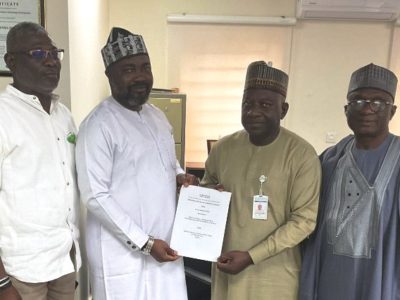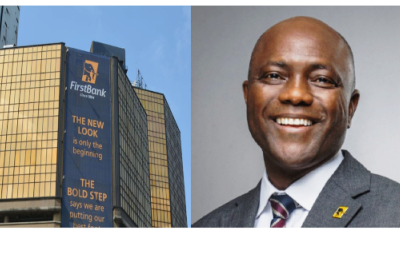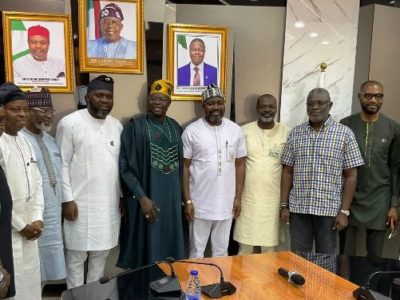By Olusegun Oruame
Fake news is on the rise as Nigeria’s elections draw nearer D-day – February 2019 with rival parties, particularly the Peoples Democratic Party (PDP) and the All Progressives Congress (APC), angling to control power at the centre.
The social media is abuzz with videos, pictures and news on politics doctored to promote or malign rival political parties depending on who is making the post.
A worried Nigeria Minister of Information and Culture, Alhaji Lai Mohammed (an APC party chieftain), has warned that merchants of fake news were igniting divisions in the country along ethnic and religious lines. Mohammed blamed the major opposition party: PDP for the killings in parts of the country attributed to herdsmen and deadly militias because he alleged that the PDP was at the forefront of promoting hate speech and using fake news to sow violence.
But not so, said PDP’s National Publicity Secretary, Mr. Kola Ologbondiyan. He is blaming the APC for ‘Unleashing tons of misinformation on the psyche of Nigerians.”
Mohammed is on a nationwide media tour as part of a national campaign against fake news, launched recently by the federal government.
But critics say it would take more than a national media tour to tame fake news. “The parties need to demonstrate maturity and love of nation than love of power so as to be able to control their members against hate speech and fake news,” said Mr. Tomori Adebayo, a Lagos based social critic.
Fake news took a massive upswing following the mass defection of APC national assembly members to other parties majorly the PDP. Since that defection, other defections have happened across party lines to set a sour tone for Nigeria’s politics in preparation for the presidential election next year, February. The political shifts and tensions have provided ammunition for fake news making even active social media users to innocently share unverified news that appeared plausible.
For instance, the much respected Senator Babafemi Ojudu, an APC chieftain, shared some photographs of a massive crowd on his page purportedly of a rally in Sokoto where Senator Wamako, a former governor of the state and currently an APC senator was addressing the large crowd ostensibly to puncture the political relevance of the current governor who had defected to the PDP. The pictures were later to be proved as fake. Senator Ojudu apologised to his social media followers. An active journalist before joining politics, his Facebook page is held in high esteem by many people. Ojudu would join the millions of innocent news minders on social media that would become victim of fake news. His apology was apt. See below:
Apology!
Yesterday I published some photographs on my page which were sent to me by one of my party’s enthusiasts. They were photographs of a rally in Sokoto purportedly addressed by Sen Wamako. I had no reason to doubt the source of the photographs until later evidence showed they were not what he claimed they were. I have since deleted the photographs from my page. I therefore wish to apologize to those who might have seen those photographs on my page particularly those misled to share it on their pages. It is not in my character to share what is fake and I frown so much at such practice.
Many who had shared Ojudu’s post would also similarly apologize.
While the Sokoto fake news was playing out, news hit the social media on the purported resignation of Akwa Ibom Deputy Governor, Mr. Moses Ekpo and his departure from the PDP to APC.
Days later, Ekpo’s Chief Press Secretary, Mr. Ekikere Umoh, would debunk the resignation story, which had been triggered on @APCNigeria Twitter handle claiming that Ekpo was leaving the PDP for APC to join Senator Godswill Akpabio, who had already signaled he was decamping PDP for APC.
Nigeria’s fake news industry is not relenting since the social media became a pronounced part of news sharing, thanks to Internet diffusion and the rise of cheap, or second hand or affordable smartphones. While data is still pricey, ubiquitous Internet access and popularity of Facebook and messaging platforms such as Whatsapp has helped to redesign how news is received and shared.
Just over a decade ago, news was largely determined by the print media. But the dynamics of technology has ensured that not only can news be manufactured by those who once waited to be fed with news by the traditional media, they can now also distort news, rework images and edit video contents in such a way as to mislead others with fake news.
Governments all over the world are making moves to checkmate fake news. The Nigerian government has made similar moves but human rights advocates have always feared that repressive governments, hiding under laws against fake news, could end up clamping down on citizens fundamental rights.
Besides, the complexities of disruptive technologies makes it increasingly difficult to move against fake news.
In Germany, India, France, the UK, and many other countries, there are laws in the offing to impose penalty on spreading fake news. Germany wants to put the responsibility on hate or fake news on the platform owners in a way that obligates them to filter hate or fake news.
Malaysia already has a law that punishes citizens on social media for spreading fake news. India is planning laws against fake news as that nation records a frightening rise in mob lynching of innocent citizens accused falsely via Whatsapp of committing rape, kidnapping or similar malicious acts.
Next year’s election will be a decisive factor in Nigeria’s evolving democracy. Fake news will, no doubt, influence how things turn out with Nigeria’s two leading parties using fake news to gain sympathy or destroy opponents.




























